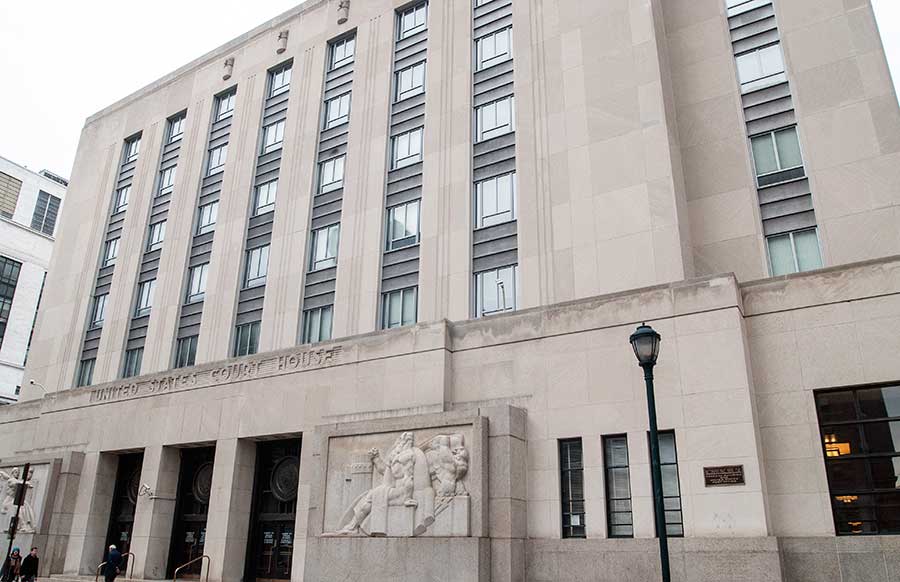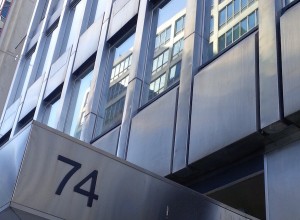
The United States Court House in Philadelphia, Pennsylvania, where the Immigration Court for the city sits. Creative Commons Attribution-NonCommercial 4.0 International License
TO paraphrase a US government representative, immigration courts might appear to be a great deal of boring admin, but the future of where people live the rest of their lives is hugely important.
The systems that make decisions about future lives in thousands and tens of thousands of lives every year should be some of the most watched and monitored of any country. They are the opposite.
I have now reported on the judicial or quasi-judicial systems for immigration in three countries – the United Kingdom, the United States and Canada. They differ in many ways but are consistent in being ignored by reporters, sometimes with a dangerous and highly dubious deference to the governments running the systems. That is a fundamental clash with Tomorrow’s core principles and is the reason for our recent coverage.
Canada’s system is a near absolute failure in being open to any scrutiny.
The Refugee Protection Division is designed to be private by default. Anyone can apply to observe a case but it must be done in advance and then get approval of all parties. I was told at the front desk on floor four of the tribunal hearing offices of 74 Victoria Street, Toronto, Ontario, that even the Office of the United Nations High Commissioner for Refugees (UNCHR) would have to apply in advance. According to 11 pages of government legalese explanations of just the differences between public and private hearings that would be enough to deter any potential visit, only the government’s own immigration officials can attend at any time. That means the system is not only secret, it is beyond even international spot checks.
[Tweet “The system is not only secret, it is beyond even international spot checks.”]Similarly, at the end of a full day attending public Immigration Appeal Division hearings, the press officer for the overarching Immigration and Refugee Board of Canada appeared a couple seats away from me and introduced himself after the hearing. He pointed out reporters tell them before attending, just as the US immigration court system “strongly” recommends on its website that reporters notify the press office before attending.
Informing one side in even a tribunal system that the press will attend is a fundamental breach of our core principle of independence (#3) and is a deference to government that would not happen in almost any other context.
Would you expect a food inspector to announce a spot check of a restaurant? The cleanliness can have life and death consequences. A court system or quasi-judicial system making decisions about the future lives of the same human beings who might go to that restaurant. To trust the system is functioning without ever bothering to report on it is a dereliction of duty on the part of the media who know full well that “justice must be seen to be done”.
In the case of Toronto, the following media outlets are nearby (distances in a straight line according to Google Maps):
- CityNews – 567m
- Toronto Sun – 948m
- Toronto Star – 1.01km
- CTV – 1.05km
- CBC – 1.08km
- Globe and Mail – 1.76km
- National Post – 2.3km
I have found no stories of their attendance at cases in the past year, but welcome any correction to that fact should they offer it.
In terms of openness, Philadelphia courtrooms had generally open doors with appointed judges and the names of individuals appearing on display in the waiting room, regardless of the type of case.
In Toronto, a quasi-judicial, administrative tribunal system, doors are closed whenever cases are on and you could only find out names by asking at the front desk. Any case involving refugees, even if the government were to argue that the person could safely return to their country of origin, cannot be disclosed. That is contradictory and hints at a scrutiny that should be provided into how the Canadian government is assessing the legitimacy of refugee claims and threats they may or may not face.
So while a reporter could almost always sit in on testimony from a rape victim even though that person’s identity would never be revealed, an identical case within the Immigration and Refugee Board of Canada system would be blocked from any scrutiny other than that of the very government deciding the legitimacy of the case.
And make no mistake, Tomorrow has the firm principles of being a safe harbour and comforting the afflicted so this is not about identifying people at risk. This is about seeing how they are treated by a country that proclaims to be a beacon of human rights and freedoms. Surely one of the greatest tests of that is to examine how the government treats those claiming sanctuary after following that beacon through the darkness, to examine the effectiveness of counsel for refugees, to seek out the holes in support systems for refugees and all the other elements that cross paths in these small administrative rooms.
Reporters are not testing these systems enough, they are showing deference to power, and justice is not being seen to be done.
[Tweet “Reporters are showing deference to power and justice is not being seen to be done.”]I hope through Tomorrow’s recent coverage – and this will in no way be the end to it in years to come – that I am not only meeting this site’s core principles but am also explaining why they matter and why these immigration courts and tribunals matter in civic society and modern reportage.


